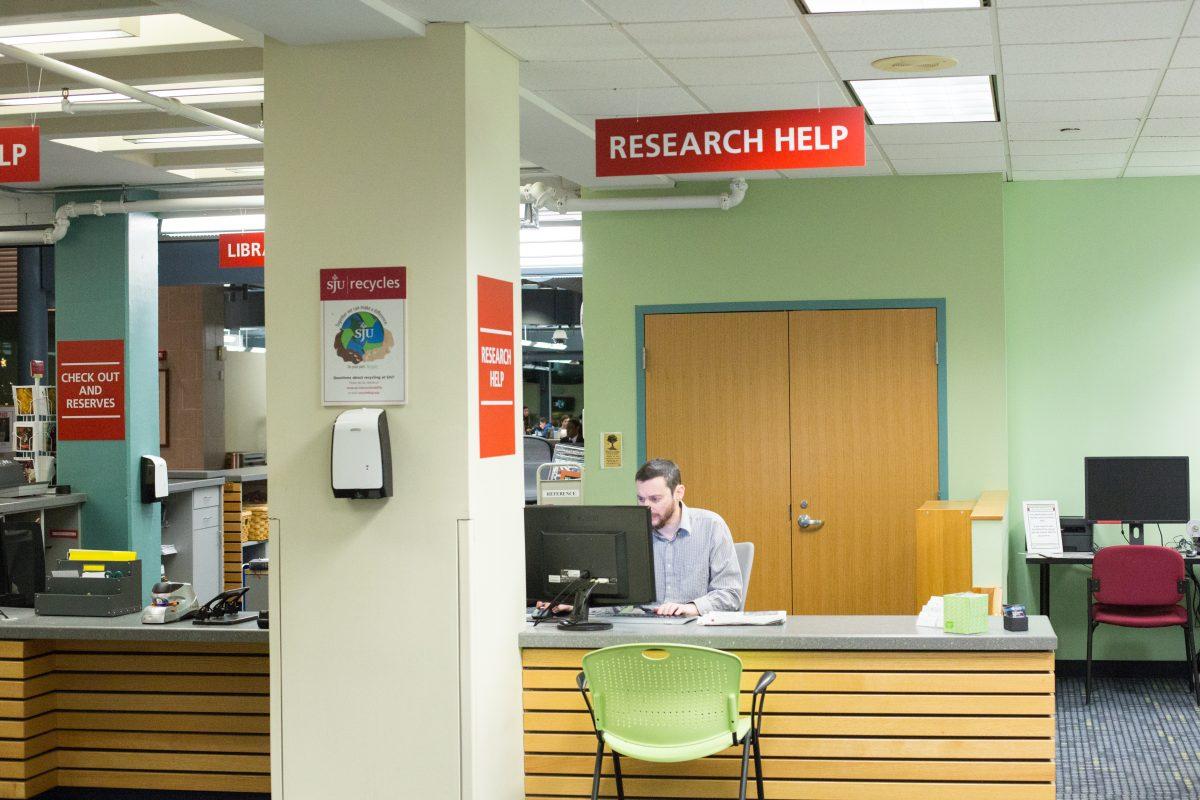The importance of resources provided by the library
It’s research paper season at St. Joe’s, and that means go-time for the team of nine reference librarians at Drexel Library.
“There are certain times of the year when undergraduate students are really going to be working on big papers and that tends to be two weeks before Thanksgiving in the fall,” said Catherine Collins, a reference librarian. “In the spring, it seems to happen right after spring break.”
Collins is the librarian who works most closely with the departments of political science, economics, international relations, gender studies and Latin American studies.
“We have nine people who do reference librarian work here, but no longer is somebody just a reference librarian,” Collins explained. “They are also a reference librarian for a particular subject. What’s great about our staff is that we all have some sort of specialized expertise in our specific area.”
When students have general questions about their research, the research help desk is the place to go.
“We answer thousands of reference questions a semester at that desk, and every reference librarian takes a shift every week,” Collins said.
There is a librarian at the desk at all hours the library is open. They either help answer the student’s questions or guide them to the librarian who is the liaison for their topic.
Library Director Anne Krakow said that if students have simple questions such as how to cite sources or where to find a specific book, the librarian who sits at the research help desk is the one who is going to be able to get students started and lead them to the first place they need to go.
“I needed to find journal articles for a research project last semester, and I wasn’t sure how to figure out if it was credible or not,” said Sophia Kotanidis ’20. “The librarian at the research help desk was able to help me find some that were really helpful and guided me in figuring out if it was a good source to use.”
When students need help with their specific assignments for a certain class, approaching the librarian whose specialty is in that particular subject area is the next course of action.
“If a student has in-depth questions on their particular project, it’s always recommended to make an appointment with the librarian who is a liaison in that area,” Krakow said. “It’s important because the librarians tend to be very prepared here, so they will sometimes come to the appointment with sources to help you.”
One of the toughest parts about research paper season for students is coming up with a topic on their own that actually has research on it.
“I’ll have students come in who don’t even have an idea for a topic yet and will say ‘here are a couple of things that I am thinking of doing, is there even research on this?’” Collins said. “That is a really smart thing to do because if you pick a topic, get your professor to sign off on it, start writing, look for research and then realize there’s nothing published on it, there is not much that we can do.”
Reference librarians suggest students do some research on their potential ideas before solidifying their topic.
“It is always helpful for us if students have done something before they come to us so that were not truly starting from scratch,” said Thomas Ipri, a reference librarian who works with the departments of English, philosophy, theology and religious studies. “If they’ve done some research and told us what worked and what didn’t work, it gives us a little more to go off of and think of what we really need to do.”
The staff of reference librarians are there to make sure students have learned about how to properly address research assignments, but it is really the job of the student to reach out for help and get their assignments done.
“Even before the research season really begins, the important thing for students is to be a good planner and to really get your ducks in a row,” Krakow said.












































